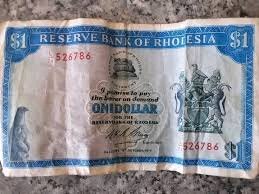IT has long served as the ceremonial ambrosia of a timeless Africa, prepared with painstaking care by rural women, toiling over smoking wood fires and steaming earthen pots.
No social occasion or religious ritual was complete without it - no wedding or funeral, no prayer for rain, no tribute to the gods.
But that was then.
Nowadays, a busy African consumer can pick up a couple of cartons of the stuff at the local liquor store on the way home from work. It comes in colourful cardboard containers and costs roughly $1 a litre.
Or, to put it another way: "It's bho-o neChibuku." That's advertising talk in Shona which means, "It's OK with Chibuku."
The slogans might be different in other parts of southern or eastern Africa, but the beverage itself and the loyalty of its consumers are broadly similar wherever the modern, standardized version of traditional African beer is available.
That means 10 countries so far - and counting. Behold the age of globalization, African-style.
In many ways, the ongoing uprooting of traditional African beer from its artisanal origins in countless mud-and-wattle villages parallels the larger economic and social trends now unfolding across the continent, as Africa's people continue to migrate to the cities, to take on salaried jobs and to surround themselves with store-brought products that are more or less the same, from Swaziland to Senegal.
Modern business
What was once a strictly local affair - the brewing of traditional African beer, fermented mostly from sorghum or millet - is increasingly morphing into a modern business, involving centralized breweries, stainless-steel vats, precise delivery schedules, annual corporate reports and multimedia advertising campaigns.
And yet the brew itself remains a quaint, even fragile affair, with an extremely short shelf life and a flavour and texture that are - let us say - not to everyone's taste.
"I wouldn't go out of my way to get it," says Bonny Ibhawoh, a professor of African history at McMaster University, who hails originally from Nigeria. "It remains a novelty for me."
There are plenty of Africans who would beg to differ.
"They really like it," says Nephat Siziba, 52, who was born and raised in Bulawayo, but now makes his home in Toronto.
The continuing popularity of an age-old beverage is good news for brewing giant SABMiller, now the world's leading producer and marketer of traditional African beer.
"The market potential is absolutely massive," says company spokesman Richard Farnsworth, speaking on the phone from his U.K. office. "It's already a significant market, and it's growing."
He's referring to the African appetite for what is variously known as "traditional beer" or "opaque beer" or, in its modern, commercial form, Chibuku. That's the brand name the product goes by in the 10 countries where SABMiller markets traditional African beer.
Food and drink
Although defined as a beer, Chibuku is a very different proposition from "clear" or European-style brews.
"Chibuku is not your typical beer," says Ibhawoh. "It has sediment at the bottom. You have to shake it. You have to slop part of it."
Many aficionados of the beverage consider Chibuku - also known as "Shake-shake" - to be as much a food as a drink, one that's meant to be eaten (not slopped) as well as imbibed.
"We used to call it 'liquid food,'" says Siziba.
But it's not the somewhat porridge-like consistency of the stuff that most endears it to Siziba and millions of others.
"I would say it's the taste," he says. "It's got a sourish taste."
"Lemony" is the term many use to describe the distinctly tart effect that traditional beer exerts upon the unsuspecting palate.
The bitterness becomes progressively more pronounced as the potion ages, because Chibuku continues to ferment even after it's been packaged.
When it leaves the brewery, the concoction typically has an alcohol content by volume of about 2 per cent, a level that increases hour by hour and day by day until Day 5, when the alcohol level peaks at about 5 per cent.
All that booziness comes at a cost. Although it increases the beverage's potency, the process of fermentation also feeds on the product's sugar content until no sugar content remains.
Short shelf life
About five days after packaging, Chibuku ceases to be "lemony" and becomes - to use a technical term - undrinkable dreck.
"It has a short shelf life," says Farnsworth at SABMiller.
But a very long history.
By some estimates, the production of beer-like libations in Africa dates back at least 5,000 years, all the way to ancient Egypt or Mesopotamia.
Traditionally, the brewers have been women, who malted whatever grains were most readily available and passed down their meticulously crafted secrets from one generation to the next.
Despite the inroads of modern marketing, the old practices do survive, and traditional beer is still produced in villages across the continent, where it goes by a multiplicity of local monikers. In Burkina Faso, it's called dolo. In Nigeria, it's pito. In Cameroon, it's bili bili. In Sudan, it's merissa.
Meanwhile, in Bulawayo - Nephat Siziba's hometown - a local form of the brew is known as ingwebu, the Ndebele word for "froth." It's produced and marketed by the local municipal council.
"This is the main revenue for the city council," says Siziba. "In Bulawayo, most people drink ingwebu."
The names may vary, but the contents are more or less the same, with slight adjustments for regional tastes - a bit more sorghum in some places, a bit less in others. Nowadays, corn is used as a fermenting ingredient, too.
But home-brewed beer is a declining phenomenon in most of Africa, as consumers adopt modern alternatives: European-style beers or liquors for the elite and the emerging middle class; and commercially produced opaque beer for the masses.
"You still have women producing traditional beer in the villages, but less and less so," says Ibhawoh.
Nowadays, opaque beer is far more closely associated with urban beer halls or shebeens than with rural festivities.
Some lament the decline of ancient brewing traditions, especially since their disappearance also entails the loss of a rare source of authority and prestige for women on a male-dominated continent. On the other hand, commercialization is better than death or blindness.
New phenomenon
Each year, hundreds of Africans lose their sight or even their lives after drinking tainted moonshine.
Chibuku is a new phenomenon in most of the countries where it is now being marketed, but it has been around since 1960 or so, when Max Heinrich, a white-skinned colonist in what was then Rhodesia, got the bright idea of exploiting an age-old African tradition.
Since then, Chibuku - whose name is an African corruption of the phrase "by the book" - has had its ups and downs. The product eventually expanded from its original markets in Zambia and Zimbabwe to include Botswana and Malawi. Meanwhile, its corporate ownership has changed several times.
Nowadays, rights to the Chibuku name in much of Africa belong to SABMiller, which last year began to market the product in six more countries: Ghana, Lesotho, Mozambique, Swaziland, Tanzania and Uganda. The company is considering further expansion into Ethiopia, Namibia, Nigeria and South Sudan.
For Chibuku's producers, the main obstacle to expansion is the product's stubborn five-day shelf life.
"It has a relatively small distribution reach, comparable to a milk run from a dairy," says Farnsworth in London.
To counter the problem, SABMiller is now rolling out a new, slightly more expensive product called Chibuku Super, a pasteurized opaque beer with a fixed alcohol content of 3.5 per cent. Super is being sold in plastic bottles with a 21-day shelf life.
"We launched it last year in northern Zambia," says Farnsworth. "It can stay on the trucks longer, and you can take it much farther."
If Chibuku Super catches on, its success will inevitably encroach even further upon the old brewing traditions.
"It's almost inevitable that one big brewer replaces hundreds of small breweries," says Richard Sandbrook, a professor of African studies at the University of Toronto.
You could call it progress, or you could call it globalization, African-style.
Either way, "It's bho-o neChibuku."
- thestar.com
 Zimbabwe launches new airline
Zimbabwe launches new airline  Hichilema meets Chivayo
Hichilema meets Chivayo  Millions celebrate Diwali festival in India
Millions celebrate Diwali festival in India  SA bitcoin firm mulls Zimbabwe listing
SA bitcoin firm mulls Zimbabwe listing  Gold edges up as traders await guidance
Gold edges up as traders await guidance  Airlink applies for Lanseria to Harare, Bulawayo route
Airlink applies for Lanseria to Harare, Bulawayo route  Young Investment Professional (YIP) Graduate Programme 2019
Young Investment Professional (YIP) Graduate Programme 2019 











 Young Investment Professional (YIP) Graduate Programme 2019
Young Investment Professional (YIP) Graduate Programme 2019
Editor's Pick